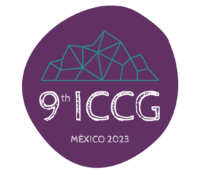In the presentation, I will reflect on the experiences of young women participating in massive
feminist mobilizations in Argentina. In the context of the Ni Una Menos movement that emerged in 2015, and the great victory of the National Campaign for the Right to Legal, Safe, and Free Abortion, preceded by years of grassroots activism, I analyze what role this intensive time has played in young women’s everyday lives. In particular, I look at spaces of care and resistance by exploring the following questions:
● How the participation in street protests, and in a wider sense in the feminist grassroots
organizing, impacted the perception of urban spaces and the women’s right to the
city?
● How girls and young women active in the feminist movements in Argentina have
been redefining and reclaiming the concepts of care and safety?
● What are the spaces of care and resistance present in girls' and young women’s
everyday lives?
In my research, I attempt to conceptualize care as a political concept that resists gender-based violence and contributes to social change. As Tronto (2013) argues, care has a democratic potential to transform unequal and unjust societies under conditions of shared responsibilities and reciprocity. In the context of gender-based inequalities, the concept of democratic care does not aim to widen the scope of women’s caring obligation – from children, family, and customers to all other women. Care could be used as a strategy for undermining the patriarchal social structure. It could provide support to women experiencing gender-based violence in the context of withdrawn state and privatized public services, which deprive many women of the resources needed to receive support.
The massive feminist mobilizations in Argentina put at the forefront struggles for justice and the elimination of all forms of gender-based violence. Events such as street protests, interventions in public spaces, and massive assemblies became spaces of resistance (Gago 2020). These spaces were created and occupied by a significantly big number of girls and young women and consequently impacted their everyday lives (Acevedo and Bosio 2019). My presentation is based on sixteen months of fieldwork in Córdoba, the second biggest city in Argentina. I spent six months in total in 2017 and 2018 on ethnographic work with local feminist initiatives and one non-governmental organization, and ten months in 2022 on the continuation of the ethnographic work and conducting in-depth individual interviews and focus group interviews. The presentation is a result of a preliminary analysis of qualitative interviews with 29 young women (below 30 years old) that focuses on their experiences of
massive mobilizations for women’s rights in Argentina in the past seven years. In addition, I explore how these experiences of feminist activism impacted the everyday care practices and perception of safety in urban settings. The research contributes to the wider debate on what role feminist mobilizations for justice, reproductive rights, and the elimination of gender-based violence plays for young women. As a researcher actively engaged in the feminist movement in my country of origin, Poland, I have witnessed the extreme backlash again women’s rights in the past eight years. A few weeks after the restriction of abortion law in Poland in October 2020, the Argentinian feminist movement won the struggle for legal, safe, and free abortion. Young women in Poland were protesting on the streets against the right-wing government taking away their basic reproductive rights and many Polish feminist initiatives started to follow the strategies of the Argentinian campaign for legalisation of abortion. These massive political mobilizations do impact the everyday lives of girls and women. That is why I found it important to research, document, and exchange the experiences of various feminist mobilizations and strategies of resistance in order to create international alliances.
